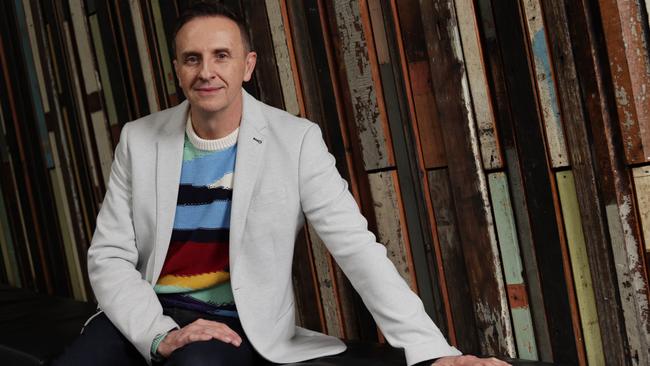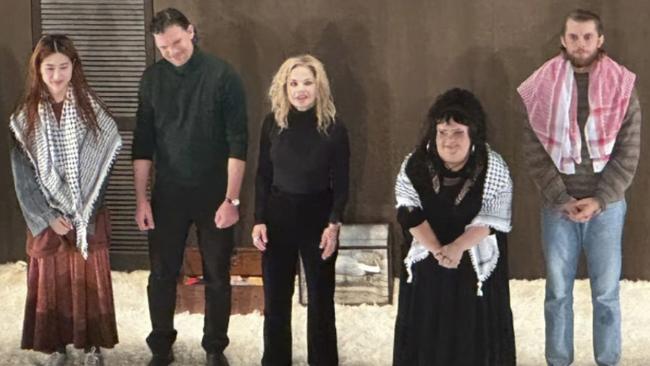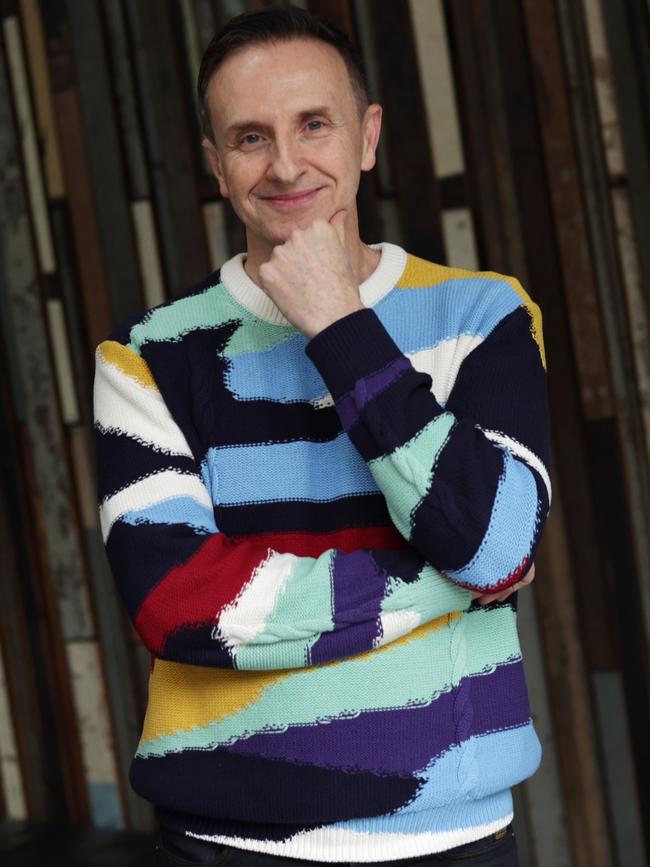Mitchell Butel named Sydney Theatre Company’s next artistic director
Sydney Theatre Company’s new artistic director Mitchell Butel says he plans to push the company in a more commercial direction and will uphold the ban of political protests on stage.

You can now listen to The Australian's articles. Give us your feedback.
The Sydney Theatre Company’s new artistic director plans to push the debt-plagued company in a more commercial direction and said he would uphold a policy of banning political protests on stage.
The STC, the nation’s biggest theatre company, announced on Tuesday that Helpmann-award winning actor, director and producer Mitchell Butel will succeed Kip Williams as its new artistic director.
“I am someone who’s not scared of the word entertainment. The biggest crime in theatre is to bore people,’’ said Butel, who is currently artistic director of the State Theatre Company of South Australia and has also been appointed as co-CEO of STC.
Butel, who will take up his powerful new role in November, also addressed the fallout from a pro-Palestinian protest by three actors during a 2023 performance of The Seagull, which reportedly cost STC $1.5m in lost support from offended Jewish donors and subscribers.
He said: “The company has made a stance that it does not support individual political statements during a curtain call, and I would be upholding that stance.’’ He added that he would “communicate that policy to artists and to our staff members because I think policy is a good thing for a company’’.
The incoming artistic director said all STC staff and donors “mourn the loss of innocent life (in the Israel-Gaza conflict) and all of us within the entire community hope for a de-escalation of the crisis’’.

He said the best way of addressing opposing views about this conflict was by programming works that reflected the perspectives of both sides. “Really the most important thing is ensuring that a lot of those conversations about the crisis and about those tensions … be in the work that we do,’’ he said.
Describing himself as “very data-driven” – taking note of what shows worked with broad audiences – Butel said: “I’m going into this role with my eyes wide open about some of the challenges the company is facing.’’
At a time when the company is carrying a hefty deficit, Butel has clearly been chosen for his shrewd financial management at STCSA. He has been artistic director of that flagship company since 2019 and it has boosted its reserves and recorded three surpluses in that time, despite challenges thrown up by the Covid pandemic.
“I’ll leave the company in very good financial shape,’’ he said.
By contrast, the STC’s 2023 annual report showed it finished the year with a net $1.8m loss and an underlying operational deficit of $15.4m.
The company’s gross revenue rose in 2023 to $27.6m on the back of strong box office results for shows including bio-play Julia (about Julia Gillard) and a touring adaptation of the Pip Williams novel, Dictionary of Lost Words – which Butel commissioned in his role at STCSA.
STC Chair Ann Johnson said she was “thrilled” to announce Butel’s appointment and that his “track record of exceptional leadership and artistic success during his six years leading STCSA is impressive’’.
Johnson said that as “Australia’s largest theatre company, it is imperative that STC remains an artist-led organisation … Mitchell’s skills, experience and vision, combined with those of our talented executive director and co-CEO Anne Dunn, give STC exceptional leadership as we take the company into its next chapter.’’
Butel said he was “very aware” of the STC’s recent deficits and confirmed that – as Williams has foreshadowed – there may be a reduction in the number of productions STC mounts. He revealed there could be longer seasons for the shows most likely to be popular with audiences.
Another imperative was to “program with the view to getting the widest possible audiences through the door’’.

While Williams’ programming has often showcased emerging actors, writers and directors, Butel “wanted to ensure there is room” for mid-career and mature writers and directors as well. He planned to reach out to expat directors such as Simon Stone and Barrie Kosky, who have built flourishing careers in Europe. When he takes up his new role in November, “Barrie will be one of the first people I call,’’ he said.
Nor did he rule out programming work by octogenarian playwright David Williamson, whose close relationship with STC ended in 2008 when Cate Blanchett and Andrew Upton became joint artistic directors. Williamson’s new play, The Puzzle, is set on a swingers’ cruise and is being staged at STCSA in September. Butel said it was “a knockout”.
The STC’s new leader was braced for feminists’ criticisms another white male had been appointed to a leadership role in theatre. He acknowledged such criticisms were made when he got the top job at STCSA, but he said he would champion gender parity for writers and directors engaged by STC.
Butel grew up in Sydney and, as an actor and director, over his 30-year career he has “done 18 shows with them (STC). It’s been a rich part of my life,” he said.
Being appointed as artistic director was “the most delicious privilege and honour’’, he said.




To join the conversation, please log in. Don't have an account? Register
Join the conversation, you are commenting as Logout